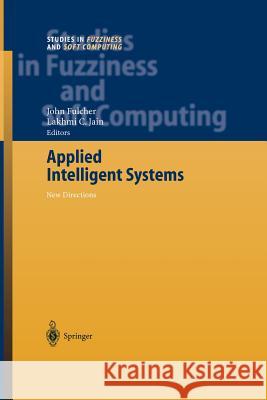Applied Intelligent Systems: New Directions » książka
Applied Intelligent Systems: New Directions
ISBN-13: 9783642059421 / Angielski / Miękka / 2010 / 325 str.
Humans have always been hopeless at predicting the future...most people now generally agree that the margin of viability in prophecy appears to be 1 ten years. Even sophisticated research endeavours in this arena tend to go 2 off the rails after a decade or so. The computer industry has been particularly prone to bold (and often way off the mark) predictions, for example: 'I think there is a world market for maybe five computers' Thomas J. Watson, IBM Chairman (1943), 'I have traveled the length and breadth of this country and talked with the best people, and I can assure you that data processing is a fad that won't last out the year' Prentice Hall Editor (1957), 'There is no reason why anyone would want a computer in their home' Ken Olsen, founder of DEC (1977) and '640K ought to be enough for anybody' Bill Gates, CEO Microsoft (1981). 3 The field of Artificial Intelligence - right from its inception - has been particularly plagued by 'bold prediction syndrome', and often by leading practitioners who should know better. AI has received a lot of bad press 4 over the decades, and a lot of it deservedly so. How often have we groaned in despair at the latest 'by the year-20xx, we will all have...(insert your own particular 'hobby horse' here - e. g.











